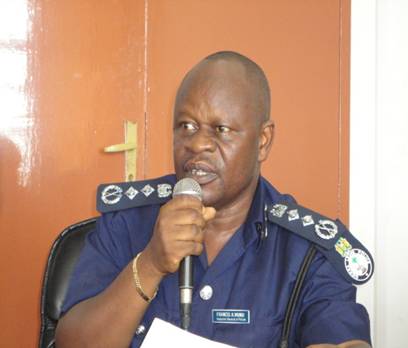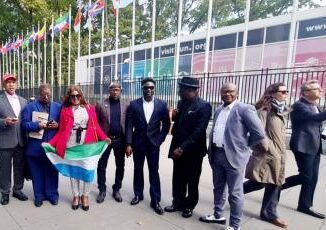
By SLP Media & Communications Unit
The incidence of corruption in any institution is determined by the level of discretion exercised by a single individual in any aspect of engagement with the public. The Sierra Leone Police is no exception to an environment where there is a high level of discretion exercised on a day to day basis by those implementing policing policy and strategy. In simple terms, the decision of what to do with a taxi driver who is found to be contravening traffic rules is an exercise in discretion. The officer who stops him makes a judgment call on which of the several procedures open to him to take. He can let him off with a warning, arrest him and take him to the station for the driver to be questioned and arraigned to court or otherwise release him after questioning. In all of this, the taxi driver would be rather apt to offer the police officer a bribe to be released without any delay so that he can go about his business. To him the economic cost of that bribe is lower than his being detained or arraigned at court where he may end up in prison if the offence is serious enough.
INSPECTOR GENERAL FRANCIS MUNU
Tackling the exercise of discretion is an effective way to end or significantly reduce corruption. There are various ways of doing this and the Sierra Leone Police is actively considering several options already. One of these options is to regulate the process of how a traffic or minor crime offender is dealt with by the police system. The Police can institute specific fines for certain offences, and these fines would be levied on the spot, reducing the time it takes to process an offender while at the same time enabling the police to establish financial penalties for misdemeanors. Where a fine system is imposed, then traffic police officers will be at liberty to issue fine billets that can be settled at the nearest police station. No doubt, a system will have to be put in place to disengage the police on the beat from handling cash. Motorists would also have to be separated from their vehicle until the on the spot fine is paid to ensure that fines are settled and not accumulated. Such a measure is expected to reduce corruption in the force considerably because the drivers would then have no reason for bribing officers for want of avoiding delay and the unpredictability of a court process.
Police performance and engagement with the public are also areas where corruption can be found. The Inspector General of Police, Francis Munu recently welcomed the establishment of a Police Complaints Commission which will be charged amongst other things with the duty to investigate complaints on the police by members of the public. The Sierra Leone Police had already instituted the Complaints Division and Internal Investigations Department (CDIID). This Department is responsible for police conduct and complaints on police abuse of authority. It is mainly seen as an internal investigations agency but it does receive and process complaints from the general public. Since its inception, the CDIID has been responsible for completing investigations that had led to the dismissal of police officers for various reasons, some of which allude to corruption. Strengthening this Department is a commitment of the Police Executive Management Board (EMB) and its effectiveness in dealing with incidences of corruption will better improve the image and professionalism of the entire police force.




Leave a Reply